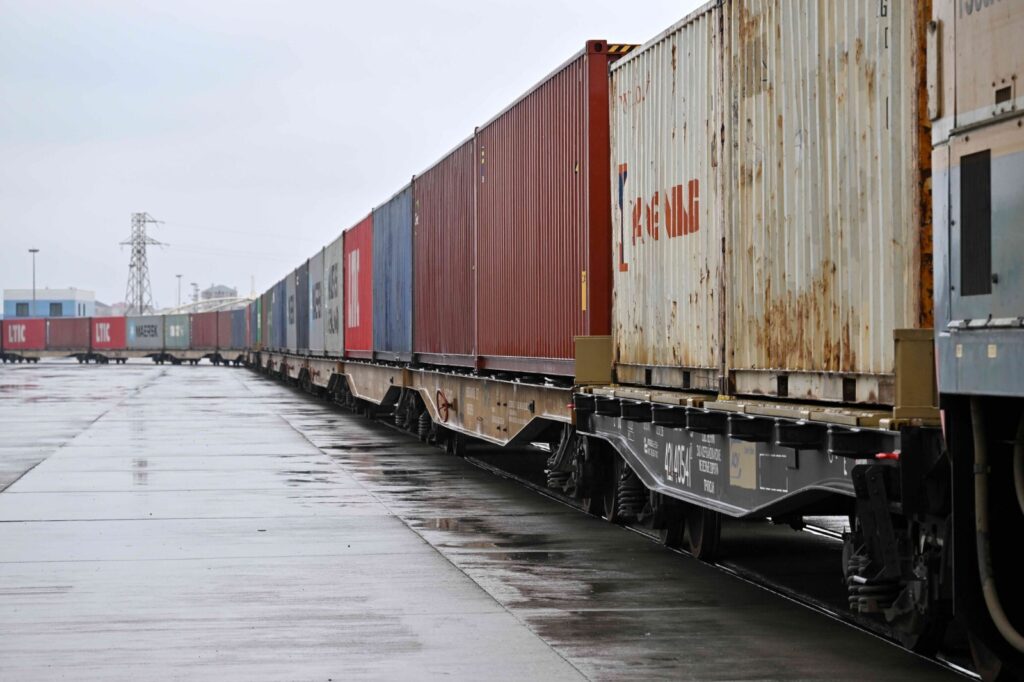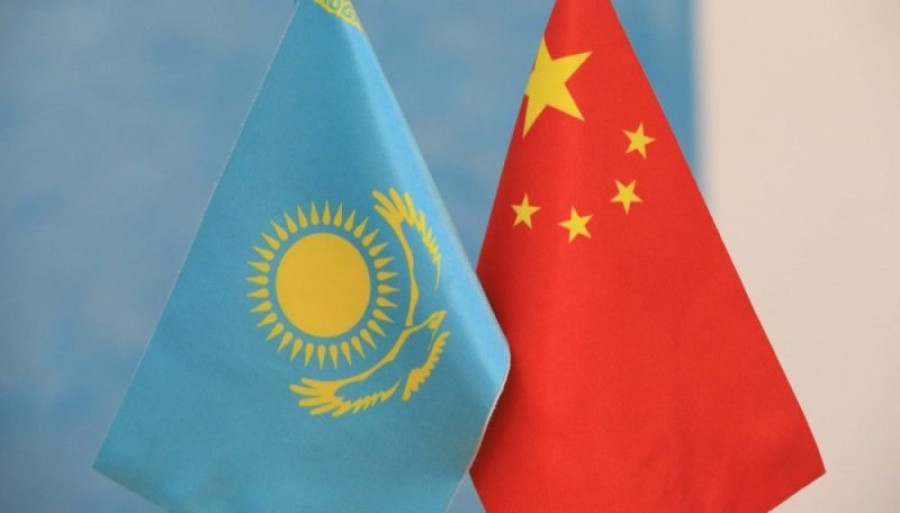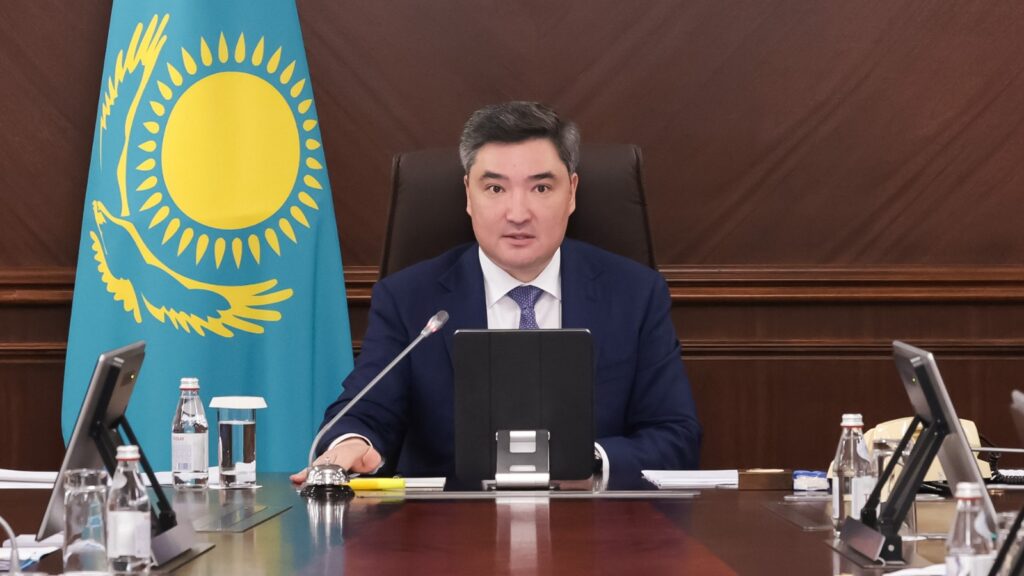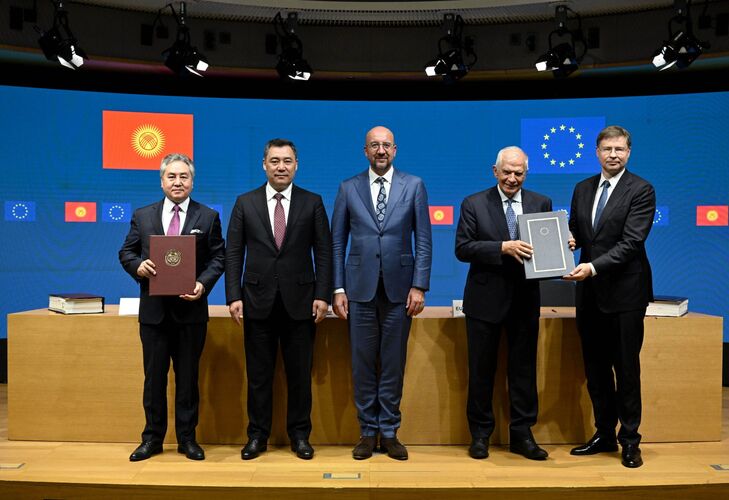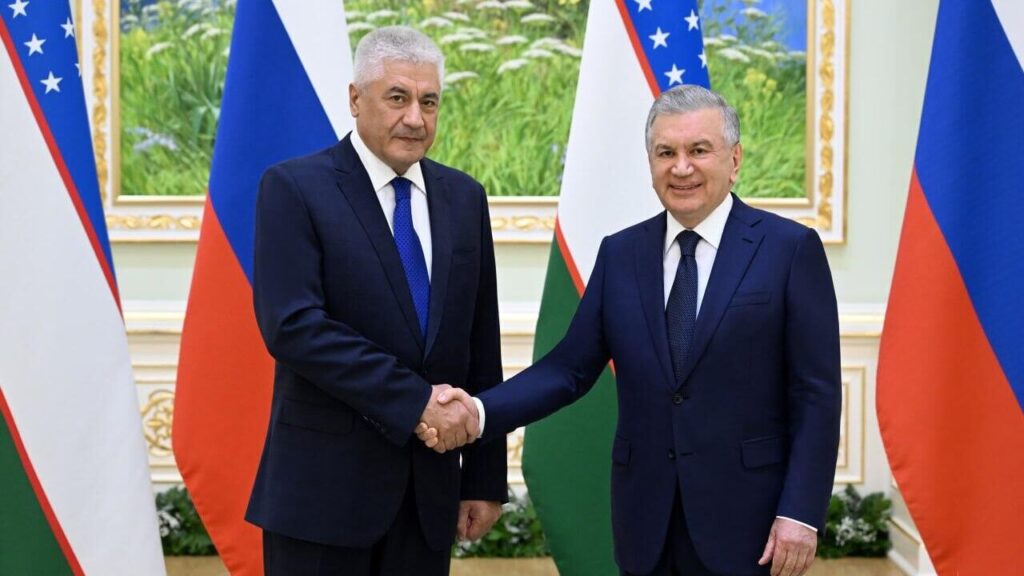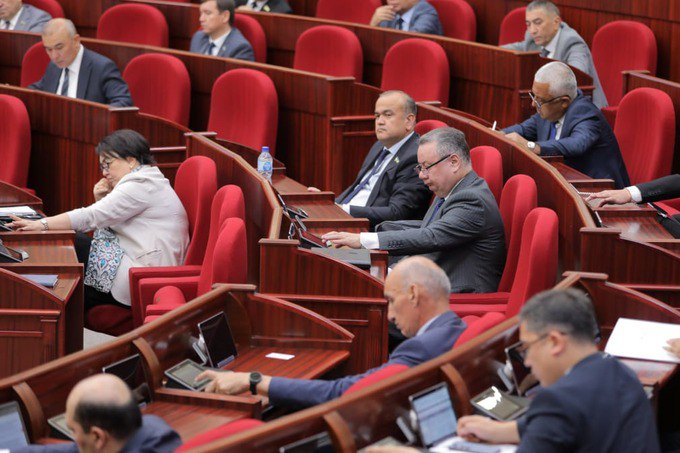On June 25, President of the Kyrgyz Republic Sadyr Japarov met the President of the European Council Charles Michel in Brussels to discuss issues on Kyrgyzstan-EU interaction.
Views were exchanged on prospects for trade and economic cooperation and the implementation of joint projects in energy, transport, rare metals, agriculture, and environmentally- friendly technologies
Following the meeting, an Enhanced Partnership and Cooperation Agreement (EPCA) between the European Union and the Kyrgyz Republic was signed by the Minister of Foreign Affairs of the Kyrgyz Republic Jeenbek Kulubaev, High Representative of the European Union for Foreign Affairs and Security Policy/Vice-President of the European Commission Josep Borrell, and Executive Vice-President of the European Commission and Commissioner for Trade Valdis Dombrovskis.
The new document replaces the Partnership and Cooperation Agreement (PCA) signed back in 1999.
As reported by the Delegation of the European Union to the Kyrgyz Republic, the Agreement provides new legal grounds for reinforced political dialogue and deepening cooperation in areas such as trade and investment, sustainable development and connectivity, research and innovation, education, environment, and climate change, as well as rule of law, human rights, and civil society. It will also strengthen cooperation in foreign and security policy, including issues of conflict prevention and crisis management, risk reduction, cybersecurity, regional stability, disarmament, non-proliferation, arms and export control.
In addition, the EPCA will create new opportunities for cooperation in critical raw materials, essential for green and digital transitions.
High Representative of the European Union for Foreign Affairs and Security Policy/Vice-President of the European Commission Josep Borrell commented: “We are happy to count the Kyrgyz Republic amongst our close partners. The Enhanced Partnership and Cooperation Agreement demonstrates our steadfast commitment to strengthening and deepening our bilateral relations based on shared values and common interests in all areas of mutual benefit, reflecting new geopolitical and economic realities. We will continue working with Kyrgyzstan on further strengthening the protection of human rights and fundamental freedoms and promote cooperation with civil society which are essential pillars of an open democratic society.”
Welcoming the initiative, Executive Vice-President and Commissioner for Trade Valdis Dombrovskis, announced: “This Enhanced Partnership and Cooperation Agreement marks a new chapter in the EU’s economic and trade relations with Kyrgyzstan. We have included an ambitious Trade and Sustainable Development Chapter that aims to promote fair and open competition, while also benefiting Kyrgyz consumers and SMEs. Through this Agreement, we are helping to create more opportunities for EU and Kyrgyz businesses and investors by facilitating trade flows and enhancing cooperation. We believe this partnership will contribute to the prosperity of our regions by generating new and better jobs and boosting economic development and resilience.”
Since 2016, the Kyrgyz Republic has benefitted from unilateral and preferential access to the EU market through the Special Incentive Arrangement for Sustainable Development (GSP+) of the EU Generalised Scheme of Preferences. Kyrgyzstan is the EU’s third largest trading partner in Central Asia. GSP+ has contributed to an increase in EU-Kyrgyzstan trade in goods in 2023 by 116% (over 2022) reaching EUR 2.845 billion.


